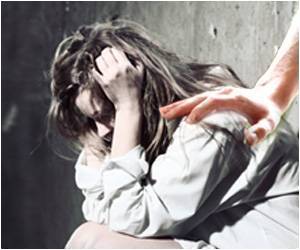A better way to assess and diagnose psychosis in children has now been developed by a team of researchers

Psychosis is a severe mental illness, characterized by hallucinations, delusions, social withdrawal and a loss of contact with reality. Genetics and environment, including emotional or physical trauma, can both play a role in its development.
The Penn researchers assessed the brain behavior of a cohort of about 10,000 patients between the ages of eight and 21 at Children's Hospital of Philadelphia from November 2009 to November 2011, including 2,321 who reported psychotic symptoms. Of those, 1,423 reported significant psychotic symptoms, 898 had limited psychotic symptoms, and 1,963 were typically developing children with no psychotic, mental or any medical disorders.
Researchers administered a structured psychiatric evaluation, looking for symptoms of psychosis, anxiety, mood, attention-deficit, disruptive behavior and eating disorders; for the younger children, independent interviews with their caregivers were also conducted. The team also administered 12 computerized neurocognitive tests to evaluate each child's brain development across five domains: executive function, testing abstraction and mental flexibility, attention and working memory; episodic memory, testing knowledge of words, faces and shapes; complex cognition, evaluating verbal and nonverbal reasoning and spatial processing; social cognition, looking at emotion identification, intensity differentiation and age estimation; and sensorimotor speed, to understand the workings of their motor and sensorimotor skills.
The results were analyzed to predict chronological age for each child.
They showed that those with the most extreme psychotic symptoms had a lower chronological than predicted age, compared with the typically-developing group and the group with other psychiatric symptoms. They also had a greater developmental lag than the psychosis-limited group, with the lags most pronounced for complex cognition and social cognition and smallest for sensorimotor speed.
Advertisement
Further, the team used the results to conclude that delays associated with psychotic symptoms appear to be between six and 18 months, and students are almost a year behind already by age eight. After age 16, the lag widens across all domains, which echoes literature showing cognitive deficits in school-age children eventually diagnosed as having psychosis.
Advertisement
Additional Penn Medicine researchers include Monica E. Calkins, PhD; Theodore D. Satterthwaite, MD, MA; Kosh Ruparel, MSE; Warren Bilker, PhD; Tyler M. Moore, PhD; Racquel Gur, MD, PhD, from the department of Psychiatry; and Hakon Hakonarson, MD, PhD, with Children's Hospital of Philadelphia.
Source-Eurekalert










